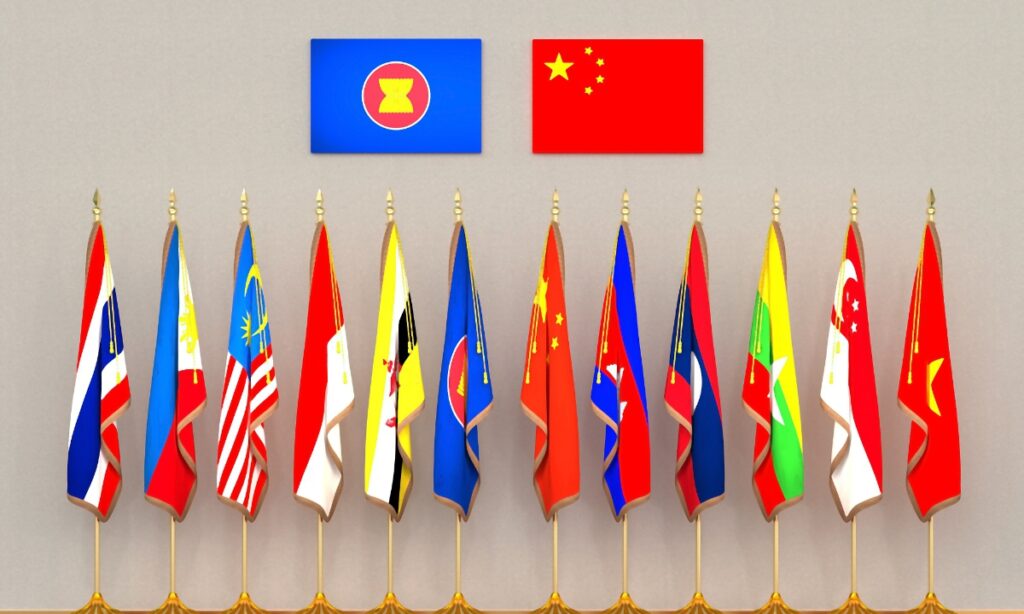Biden’s absence proves US more interested in rivalry than multilateral cooperation
With the shared concern over global economic growth where Asia plays a pillar role, leaders of ASEAN members and dialogue partner countries are gathering in Jakarta for the 43rd ASEAN Summit and related meetings scheduled from Tuesday to Thursday.
While geopolitical tensions and disputes on some topics loom over the agenda, analysts said the group wants to strengthen its focus on dialogue, cooperation and peaceful development, which the US has less interest in than its rivalry with China, and therefore it is sending the vice president to Indonesia.
Leaders from countries including China, the US, Japan, South Korea, Australia, Canada, and organizations including the UN and the EU will attend this “diplomatic carnival” in Southeast Asia.
Chinese Premier Li Qiang will attend the 26th China-ASEAN Summit, the 26th ASEAN Plus Three (APT) Summit and the 18th East Asia Summit from Tuesday to Friday, and pay an official visit to Indonesia, according to the Chinese Foreign Ministry. Li will then attend the G20 summit scheduled on Saturday and Sunday in India.
The visit to Indonesia is Li’s first visit to an Asian country after assuming the post and a visit by Chinese premier after five years. This year also marks the 10th anniversary of bilateral comprehensive strategic partnership.
Under the theme of “ASEAN Matters: Epicentrum of Growth,” the group’s leaders will discuss strengthening ASEAN integration and expanding collaboration in key areas such as the digital and green economies, per media reports.
Xu Liping, director of the Center for Southeast Asian Studies at the Chinese Academy of Social Sciences, told the Global Times on Monday that against the backdrop of intensifying geopolitics, ASEAN focuses on economic growth and downplays political and security matters. Their main demands are not to take sides between major powers, but prioritize cooperation and regional integration.
China is working with the group in that direction, together making the cake bigger, pushing forward pragmatic cooperation projects and encouraging closer friendship through people-to-people exchanges, Xu said, citing bilateral trade volume and active building of a community with a shared future.
As for disputes over the South China Sea, it is a matter that could and should be settled only by parties involved via dialogue, and any acts escalating the situation and jeopardizing peace should be opposed, analysts said.
Chinese Foreign Minister Wang Yi, when addressing the Global Town Hall 2023 on Saturday, said “Attempts by certain forces outside the region to undermine peace in the South China Sea will not succeed, and the evil claws behind the scenes must be uncovered.”
China will implement the Declaration on the Conduct of Parties in the South China Sea with ASEAN countries, strive to reach the “Code of Conduct” at an early date, and jointly build the South China Sea into a sea of peace, friendship and cooperation, said Wang, who is also a member of the Political Bureau of the Communist Party of China Central Committee.
Some topics of discussion at ASEAN meetings can be contentious, yet the group, through more than half a century of development, upholds its centrality and has demonstrated resilience to changes, Ge Hongliang, deputy director of the College of ASEAN Studies at Guangxi University for Nationalities, told the Global Times on Monday.
Such resilience decides it will not be manipulated by the US to serve Washington’s “Indo-Pacific Strategy” which targets China, and the US hence loses interest in it, analysts said.
Although the meetings were adjusted from November to September “reportedly at US President Joe Biden’s convenience,” Biden decided to skip the ASEAN Summit and fly to Asia for the G20 summit scheduled right after ASEAN meetings, then visit Vietnam to elevate ties.
Vice President Kamala Harris will attend the ASEAN Summit instead.
The US is not interested in large multilateral cooperation and mechanisms, and eyes realizing its strategic design in the Asia-Pacific through bilateral and “small-multilateral” formats, Ge said, citing US-Philippines enhanced military ties.
For ASEAN, the US wants it to be divided rather than integrated, as a fragmented ASEAN would be easier for the US to hijack and manipulate, Ge said.
Some regional countries are leaning toward the US for various reasons, but they should be cautious of the consequences – the US will not hesitate to implant chaos and conflicts in the region to increase some countries’ dependence on the US. At that time, it is Asia-Pacific countries that will suffer, not the US itself, analysts noted.
(Global Times)




